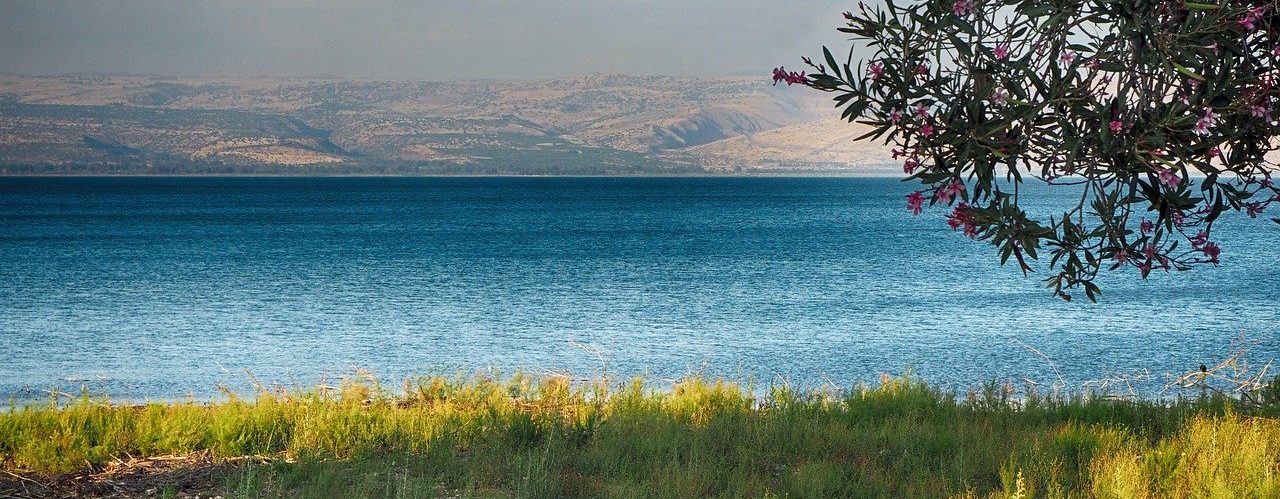In Australia there was a man named Tom. He could be difficult to deal with but everyone had patience for him because they knew that his shortcomings were not his fault. He had been through the Holocaust.
One thing that Tom did that was completely out of character was bake cherry pies. Often, when there was a Bris or a Kiddush, Tom would come to the kitchen and bake a beautiful pie. He would top it with crisscrossed strips of dough and present it to the Baalei Simcha.
It turns out that when Tom was in the concentration camps he worked as a chef. He would bake beautiful pies for the Nazi officers and it hurt him to no end. When he finally got out of the camps he set about fixing the problem. He made pies for people celebrating happy occasions. In this way he could brighten up a world that the Nazis had sought to darken forever.
Moshe Rabbeinu led an accomplished life. He took us out of Egypt, got us the Torah and pleaded our case before Hashem on ten different occasions. He brought Hashem and the Torah to the eyes of the world. Still, Moshe was unsatisfied because he could not enter the land of Israel. In Parshas Va’eschanan, Moshe begged in 515 different ways to enter the land. If he could not enter as a leader, he would enter as a simple person, a bird, a stone, or even a gust of wind. Moshe understood the beauty of Eretz Yisroel.
The verse tells us that servants of Hashem love even the dust and the stones of the land of Israel.
At the same time, there were another group of people – the Bnei Gad and the Bnei Reuvain. They came to Moshe with a request: “Please do not send us across the Jordan. We do not want to enter Israel. We want to stay here.”
One could imagine Moshe’s response to these tribes. They needed to open up their eyes to the beauty of Israel and the holiness of its stones. He could have told them about the site of the Bais Hamikdash and about the Mearas Hamachpeila. He didn’t.
Instead Moshe lectured the tribes Gad and Reuvain on empathy. “Will you stay here while your brothers go to war? Will you throw cold water on their excitement and shatter their resolve to enter the holy land?”
Moshe Rabbeinu realized that the tribes of Gad and Reuvain were not ready to hear about the dust and stones of the land of Israel. They would have time for those regrets later. The first step, the important step now, was for them to hear about the beauty of their fellow Jews. They needed to be thinking about each other and about what their decision not to cross the Yardein would do to their cousins in the Shevatim of Dan and Naftali.
The Gemara in Gittin tells us that Jerusalem was destroyed because of Kamtza and Bar Kamtza. We are sitting on the floor today because Kamtza was insulted. Who was Bar Kamtza? We don’t know a lot about him, but we do know that he encouraged the Caesar to attack the Jews. Not a very good guy, but good enough that we were punished because people like him were mistreated.
As we rise from the ashes of Tisha B’av we need to look around us and learn to appreciate every single person. We need to find something to admire in every person and we need to do everything we can to avoid insulting another person.
When it comes to actions that are between us and Hashem, we can always claim that we had good intentions. If we thought the food was Kosher or we forgot that it was Shabbos our sins make less of an impact. By contrast, when it comes to actions between people intentions don’t always matter. If someone is insulted, he is insulted. He may be reacting unreasonably, but we see from Bar Kamtza that that unreasonable reaction has the potential to cause us just as much pain as a reasonable reaction. If not more.
We have just finished mourning the tragedies we have experienced as a nation. It is time to yearn for the air and the dust and the water of Eretz Yisroel.
Moshe Rabbeinu has taught us that we do not prepare for our journey by reading travel books and studying satellite images on Google Earth. We prepare for the final Geulah by learning how to treat the people around us and training ourselves to value every person and the effect that we can have on him or her.
We need to emerge from Tisha B’av ready to go further. We need to solve the world’s problems and bring about the ultimate redemption. We can do this by thinking about others and brightening their lives.
(Sources: Rav Chaim Shmuelevitz, Rav Peretz Tarshish)


Rav Sender, thank you for this contribution. This should give us a good perspective going into the 7 weeks of consolation. — Jeff
i have never put a comment on this site even though i try to read the divrei Torah every erev Shabbos.
this one really touched my heart as so much damage is done when one person hurts another. it is the source of so much agmat nefesh. i know everyone has a story about being on the receiving end of a hurtful remark, perhaps not given to elicit that reaction, but nevertheless, that is the outcome as you say Rav Sender. may we try our best to be more sensitive to each person, to understand from where they are coming. some people are so very medakdeik on bein adom l’Hashem but not so with bein adom l’chaveiro. let’s try to dedicate ourselves to perfecting the latter. may we see the Geula b’rachamim u’ bim’heira…may we be zochim. shabbat shalom to everyone.